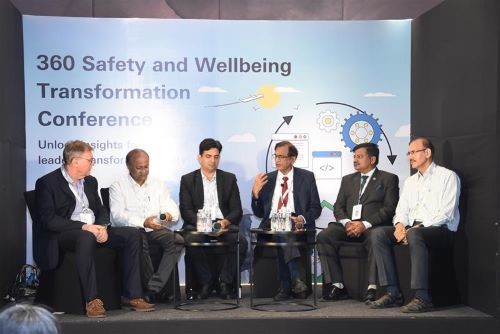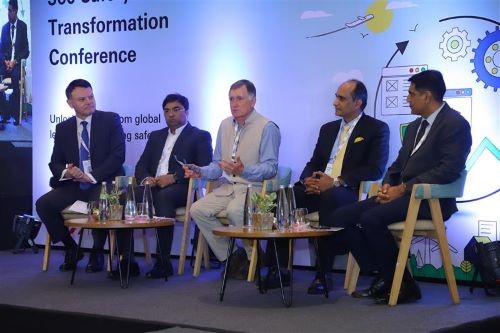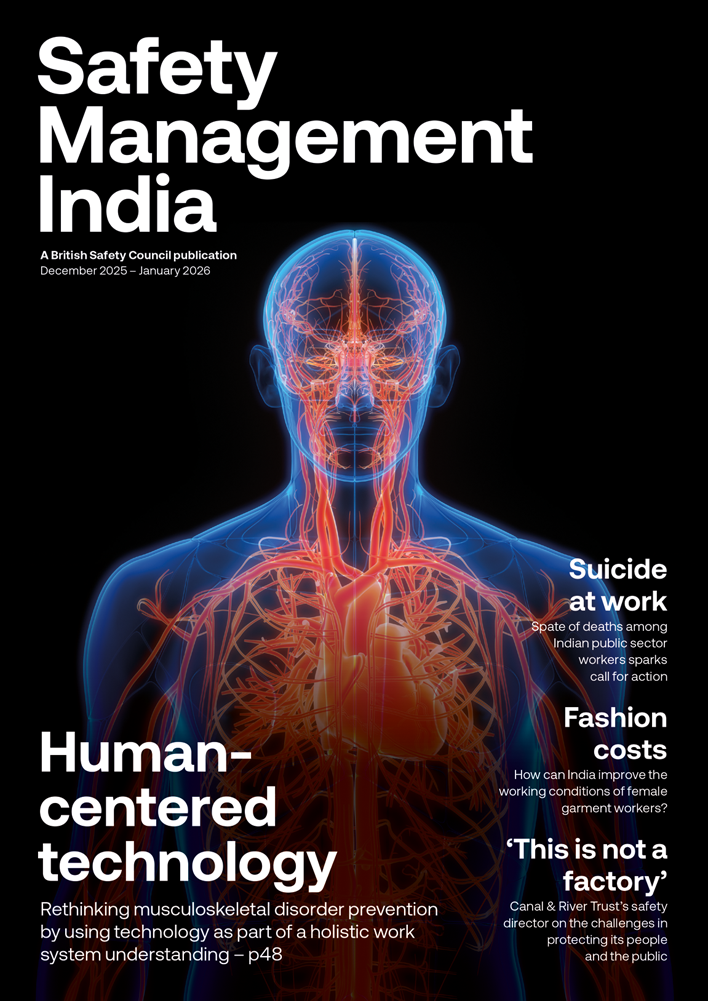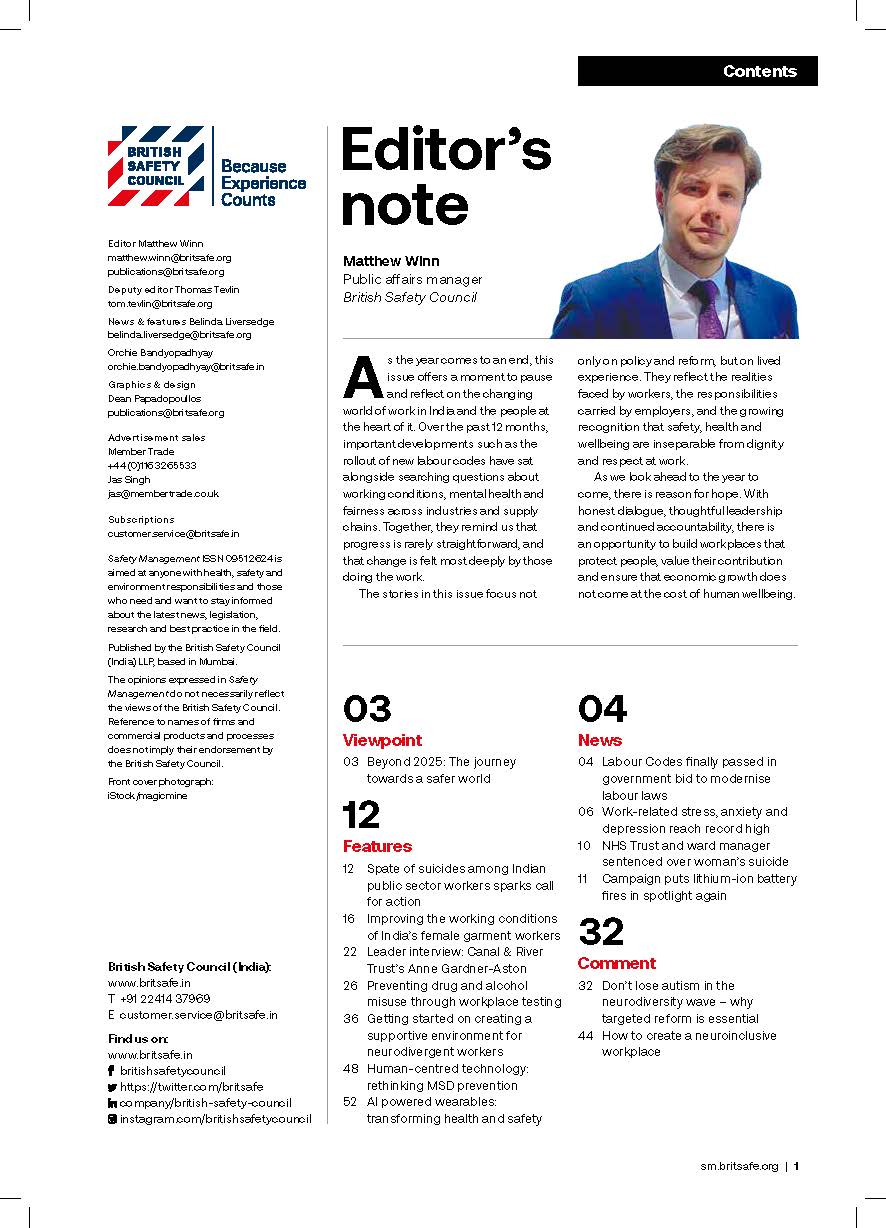News
Best practice explored at British Safety Council OSH conferences in Mumbai and Delhi
Safety practitioners from leading Indian companies came together to hear the latest thinking, research and best practice for improving occupational health, safety and wellbeing at British Safety Council India’s recent 360 Safety and Wellbeing Transformation Conferences in Mumbai and Delhi.
The full-day events saw global occupational health, safety and wellbeing experts sharing their knowledge on transforming safety performance, process safety management, cultural leadership, risk management, risk profiling and promoting employee wellbeing.

Opening the conferences, Mike Robinson, chief executive of British Safety Council, said: “The 360 Safety and Wellbeing Transformation Conference is designed to focus on holistic safety transformation, ensuring comprehensive and forward-thinking safety practices.
“Healthy and safe workers are good for business. In the UK, we are a charity. Therefore, as a not-for-profit organisation, we use all our resources to reduce risks and prevent injuries in workplaces across the world.
“We help organisations of all sizes, in all sectors develop and maintain effective policies and processes. Over the years we have educated millions of workers and made thousands of workplaces safer.
“In India, we have been supporting organisations for 40 years, initially with UK-based resources. But with the establishment of British Safety Council India and the opening of our Mumbai office in 2017, things have changed. We have grown our team rapidly, especially since the pandemic.”
Robinson added he was “confident all attendees will leave with actionable takeaways that can be implemented immediately in their organisations”.
Panel discussion
During a panel discussion on leading transformation from a safety perspective, panellists agreed it is important for employers to encourage and ensure consistent safer and healthy behaviour among all workers.
The speakers on the panel included Kumaran WR, executive director at DLF; Vikas Matta, associate vice president (Plant Head Gurugram & Dharuhera Plant), Hero MotoCorp; Sourav Gupta, chief risk officer, Pipeline Infrastructure Ltd; and Peter McGettrick, chairman, British Safety Council.
McGettrick urged the assembled safety practitioners to “drive change in a proactive rather than a reactive way”.
In his presentation on ‘driving transformation through safety and wellbeing’, Nick Wharton, a specialist in safety culture change and behavioral safety, said: “When something bad happens there is a lot of focus on the bad stuff so that it does not happen again. But one needs to focus on the good stuff as well so that it can be repeated.”
Commenting on the need for directors and managers to lead on safety and in turn convince the workforce of its importance, Wharton added: “Good leadership is not about getting people to do something. That’s really easy. But good leaders lead by example. They influence people. Also, leaders
in any organisation determine the safety culture and leadership and culture cannot be separated.”
The conference also showcased best practices, emerging trends and successful strategies for improving occupational health, safety and wellbeing from around the world. There were presentations and discussions on controlling process safety risks; designing effective employee wellbeing initiatives; and managing and investigating incidents. Sunit Jamuar, associate general manager – global quality and safety, at Asian Paints, delivered a case study setting out how his company had successfully transformed its safety culture to achieve world-class standards.
Other speakers at the conference included: Ian Travers, process safety expert and former deputy director of chemicals regulation at the UK’s Health and Safety Executive; Stephen Haynes, director of wellbeing at British Safety Council UK; Suresh Tanwar, head of audit and consultancy, British Safety Council India; and M Kamarajan, head of education, British Safety Council India.

NEWS
Employment rights bill passes into law, bringing 'work into the 21st century'
By on 24 December 2025

Long awaited Labour Codes finally passed in government bid to modernise labour laws and boost workers’ safety, wellbeing and employment rights
By Orchie Bandyopadhyay on 11 December 2025



